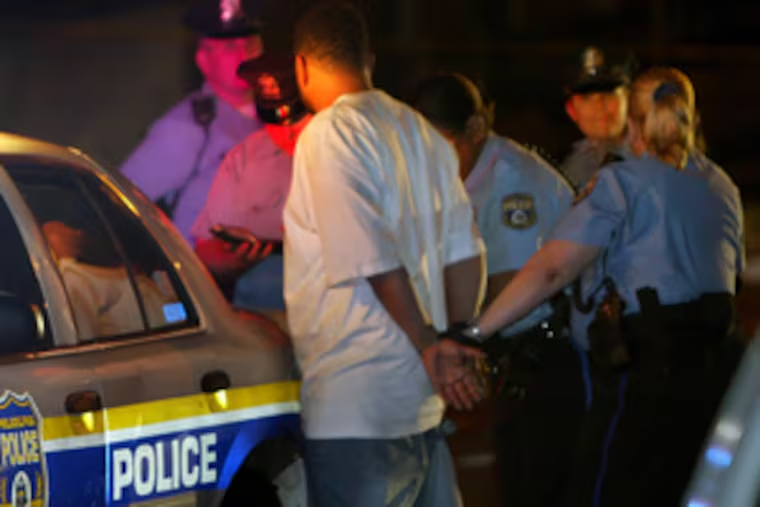More than racist Facebook posts, police vehicle stops are driving distrust | Editorial
Unlike pedestrian stops that are monitored by the court, a big spike in vehicle stops have remained under the radar.

After the Plain View Project published a catalogue of racist Facebook comments made by more than 300 active duty Philadelphia police officers earlier this year, city officials -- to say nothing of citizens and civic leaders -- expressed concern over the impact of such posts on public trust in the police. The posts were abhorrent and the city was right to terminate 15 officers and discipline many others -- but new data on police vehicle stops is a reminder that many people distrust police because of their own lived experience.
On Monday, The Inquirer’s Samantha Melamed reported that in 2019 vehicle stops made by police in Philadelphia have skyrocketed -- averaging 10,000 more stops every month compared to last year. The number of white drivers who are stopped by police has remained relatively stable since 2014 but, over the same time period, the number of black and Latino drivers who were stopped more than doubled. In total, the police have stopped more than 250,000 drivers already this year. About 75% of all stops and 80% of all searches involve blacks and Latinos. The vast majority of the stops do not recover contraband. In fact, the rate at which officers find contraband has declined-- which makes the increase in stops even more troubling.
Unlike pedestrian stops that are monitored by the court as a part of a stop-and-frisk settlement from 2011, vehicle stops have remained under the radar.
Like pedestrians, black and Latino drivers who were stopped by police seemingly for no reason other than the color of their skin don’t need to read offensive Facebook posts to distrust the police.
» READ MORE: Philly has had enough ‘bad apples’ excuses; time to bring real change to police | Editorial
Interactions with police that civilians perceive as unfair breed distrust, as well as cynicism about the rule of law. A recent study by Amanda Geller, of New York University, and Jeffery Fagan, Columbia University, demonstrate that teens’ interactions with police shape their relationship with the law. The teens who see these interactions as intrusive or unfair are less likely to respect law enforcement officers or to develop a sense that they should adhere to the law. Negative perceptions were diminished when teens had interactions hey perceived as fair.
When combined, the more than a quarter million vehicle stops and the tens of thousands of pedestrian stops -- the vast majority of which are likely to end without recovery of contraband or arrest -- seem likely to accomplish more to brew cynicism and disrespect than prevent crime.
Former Police Commissioner Richard Ross, who resigned abruptly last summer due to his ties to a sexual harassment and discrimination lawsuit, had been seen as making some progress in narrowing racial disparities in pedestrian stop-and-frisk. This new data calls that legacy into question.
» READ MORE: Police commissioner resignation must be the start of more radical change for Philly PD | Editorial
As this board has previously argued, the selection of a new police commissioner is an opportunity to reassess and rethink policing in Philadelphia --the goals of the police department, its culture, and the legitimacy of its tactics. But as critical as the police commissioner choice is, it will take more than one person to push for the fundamental change required to restore trust in law enforcement. As always, it starts at the top, with the Mayor.